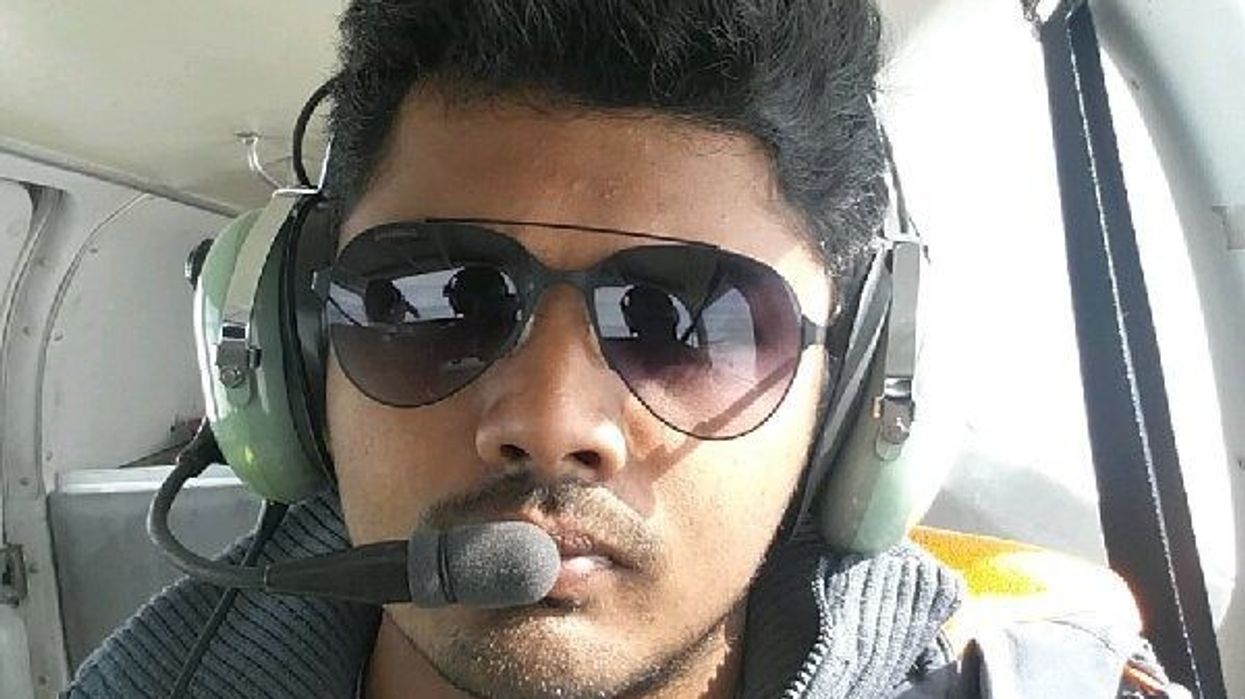TRIBUTES have been paid to a pilot who sacrificed his life to save two children from Welsh waterfall.
Mohananeethan Muruganantharaja, 27, lost his life last week while rescuing his two young nieces from the treacherous waters of Sgwd Y Pannwr falls at Ystradfellte, reported The Telegraph.
“It is with heavy hearts that we announce the passing of our beloved Mohan. He touched the lives of so many and brought warmth and love to all who knew him with his never ending smile," Muruganantharaja’s badminton club in Swansea said in a tribute.
“Thank you for your love, support, and compassion during this challenging time.”
The distressing incident occurred on Friday (1) afternoon when Muruganantharaja, who had spotted his nieces in peril, didn't hesitate to jump into the water to save them.
His niece recounted the harrowing moment, saying, "My uncle came in to pull us out one by one." While he succeeded in rescuing his nieces from the fast-moving river, he himself got caught in its relentless current.
Tragically, the Sri Lankan-born pilot was unable to reach the safety of the riverbank and disappeared from view, leaving his family and onlookers in shock and distress.
Emergency services were immediately summoned to the scene, including an air ambulance. Desperate efforts were made to save his life, but the treacherous waters had claimed their hero.
His niece described the moment when it became clear that something was gravely wrong: "I could see his hands slipping into the water. We thought he was doing some sort of trick like he does in the sea, going underwater and grabbing our legs."
Muruganantharaja's body was eventually recovered at approximately 7pm, but due to adverse weather conditions, it could not be retrieved until the following morning when specialist divers were brought in.
Despite being a qualified pilot, Muruganantharaja worked in an off-licence in Swansea, demonstrating his dedication to his family's well-being. His grieving family members have called for more prominent warning signs at the waterfall, emphasising the need to remind visitors of the potential dangers.
While there was a sign at the site, it was considered insufficient by the family. His niece expressed her concerns, saying, "I want a sign to be there to remind people that people have died, that you're risking your life by going in the water." She further highlighted the troubling sight of people swimming in the pool just hours after her uncle's body was recovered.
“We were called to Sgwd Y Pannwr waterfall, Ystradfellte, at approximately 4.40pm on Friday to a report of a man having gone into the water to rescue two children and not come out," said a spokesperson for Dyfed Powys Police.
“A multi-agency response was commenced with representation from the police, fire service, mountain rescue, HART and both the UK Air Rescue Team and the Wales Air Ambulance landing their aircrafts nearby.”
Sgwd Y Pannwr waterfall, often called the 'Fall of the Fuller', attracts hikers and photographers due to its dramatic 40-foot cascades along the Afon Mellte river.





